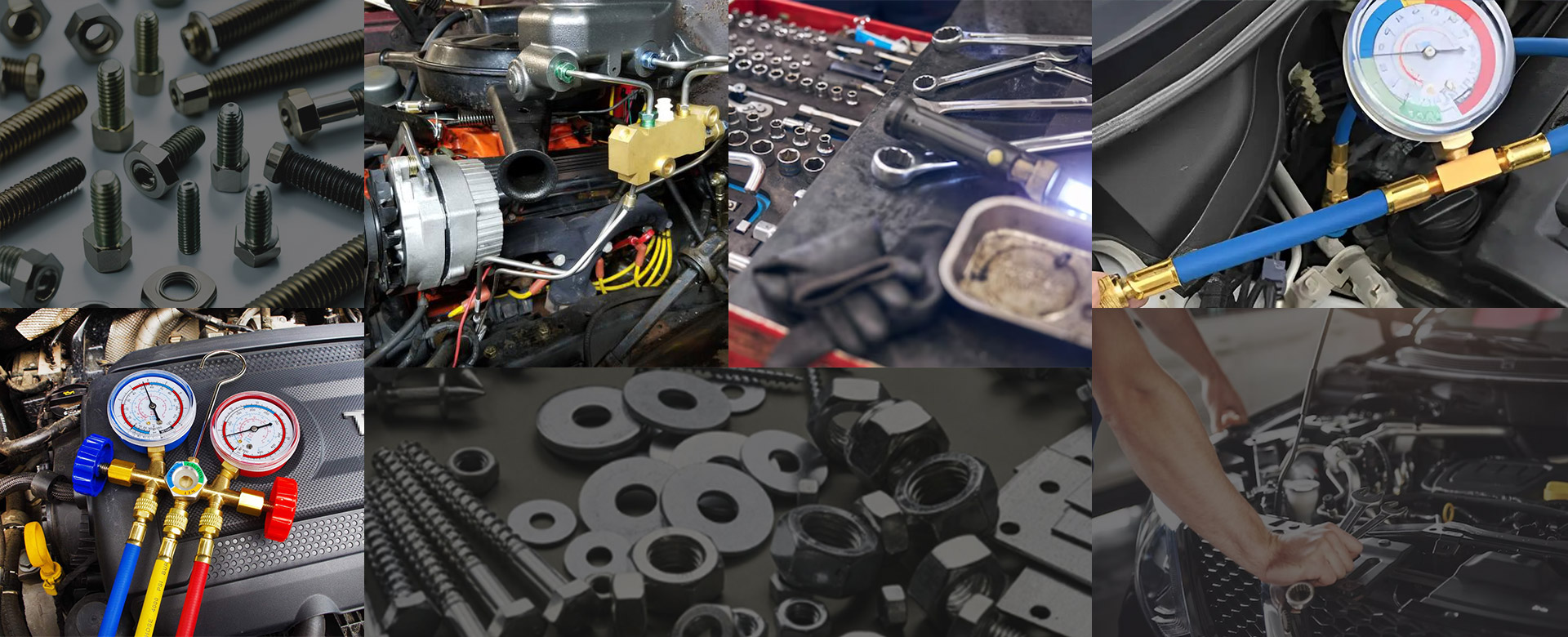Introduction to R1234YF Coupler: Advancements in Automotive Refrigerant Technology
- Home
- Introduction to R1234YF Coupler: Advancements in Automotive Refrigerant Technology
Overview of R1234YF Coupler
In the ever-evolving landscape of automotive technology, the R1234YF coupler has emerged as a pivotal component in the realm of air conditioning systems. This article explores the key features and advancements associated with the R1234YF coupler, shedding light on its significance in the automotive industry.
Environmental Considerations
One of the primary drivers behind the adoption of the R1234YF coupler is its environmental friendliness. Unlike its predecessor, R134a, R1234YF is a low-global-warming-potential (GWP) refrigerant, aligning with the industry's commitment to reducing greenhouse gas emissions. The coupler plays a crucial role in facilitating the safe and efficient transfer of this environmentally conscious refrigerant within automotive air conditioning systems.
Safety Features and Standards
Ensuring safety is paramount in the automotive sector, and the R1234YF coupler is designed with stringent safety features and compliance standards. These couplers adhere to specific regulations to prevent leaks and minimize the risk of accidents. As safety remains a top priority, manufacturers and technicians must be well-versed in the proper handling and usage of R1234YF couplers.
Compatibility and Retrofitting
An essential aspect of the R1234YF coupler is its compatibility with newer automotive models and the feasibility of retrofitting existing systems. This adaptability enables a smooth transition for the automotive industry as it moves away from older refrigerants. The coupler's design ensures seamless integration with modern air conditioning systems, contributing to the overall efficiency of the vehicle.
Performance and Energy Efficiency
Beyond environmental considerations, the R1234YF coupler enhances the performance and energy efficiency of automotive air conditioning systems. This refrigerant facilitates better heat exchange, leading to improved cooling capabilities. As a result, vehicles equipped with R1234YF couplers can provide a more comfortable driving experience while maintaining energy efficiency, contributing to both driver satisfaction and fuel economy.
Challenges and Solutions
Despite the numerous advantages, the adoption of R1234YF couplers has not been without challenges. Issues such as potential refrigerant leaks and system compatibility concerns have been raised. However, ongoing research and development are addressing these challenges, with manufacturers continuously refining the design and implementation of R1234YF couplers to overcome these obstacles.
Industry Transition and Regulations
The automotive industry is in the midst of a significant transition, with many regions implementing regulations mandating the use of low-GWP refrigerants like R1234YF. This transition has a profound impact on manufacturers, technicians, and consumers alike. Understanding and embracing these changes are essential for the industry to stay in compliance with evolving environmental standards.
Training and Certification
As the use of R1234YF couplers becomes more widespread, the importance of training and certification for automotive technicians cannot be overstated. Proper education ensures that technicians are well-equipped to handle the new technology, minimizing the risk of mishandling and promoting overall safety. Certification programs are integral to keeping professionals abreast of the latest developments in automotive refrigerant systems.
Conclusion
In conclusion, the R1234YF coupler represents a significant advancement in automotive refrigerant technology, aligning with the industry's commitment to environmental sustainability and safety. Its compatibility, performance benefits, and adherence to regulations make it a key component in the transition towards a greener and more efficient automotive future. As the automotive landscape continues to evolve, the R1234YF coupler stands out as a crucial innovation, shaping the way vehicles cool and contributing to a more sustainable and responsible industry.

In the ever-evolving landscape of automotive technology, the R1234YF coupler has emerged as a pivotal component in the realm of air conditioning systems. This article explores the key features and advancements associated with the R1234YF coupler, shedding light on its significance in the automotive industry.
Environmental Considerations
One of the primary drivers behind the adoption of the R1234YF coupler is its environmental friendliness. Unlike its predecessor, R134a, R1234YF is a low-global-warming-potential (GWP) refrigerant, aligning with the industry's commitment to reducing greenhouse gas emissions. The coupler plays a crucial role in facilitating the safe and efficient transfer of this environmentally conscious refrigerant within automotive air conditioning systems.
Safety Features and Standards
Ensuring safety is paramount in the automotive sector, and the R1234YF coupler is designed with stringent safety features and compliance standards. These couplers adhere to specific regulations to prevent leaks and minimize the risk of accidents. As safety remains a top priority, manufacturers and technicians must be well-versed in the proper handling and usage of R1234YF couplers.
Compatibility and Retrofitting
An essential aspect of the R1234YF coupler is its compatibility with newer automotive models and the feasibility of retrofitting existing systems. This adaptability enables a smooth transition for the automotive industry as it moves away from older refrigerants. The coupler's design ensures seamless integration with modern air conditioning systems, contributing to the overall efficiency of the vehicle.
Performance and Energy Efficiency
Beyond environmental considerations, the R1234YF coupler enhances the performance and energy efficiency of automotive air conditioning systems. This refrigerant facilitates better heat exchange, leading to improved cooling capabilities. As a result, vehicles equipped with R1234YF couplers can provide a more comfortable driving experience while maintaining energy efficiency, contributing to both driver satisfaction and fuel economy.
Challenges and Solutions
Despite the numerous advantages, the adoption of R1234YF couplers has not been without challenges. Issues such as potential refrigerant leaks and system compatibility concerns have been raised. However, ongoing research and development are addressing these challenges, with manufacturers continuously refining the design and implementation of R1234YF couplers to overcome these obstacles.
Industry Transition and Regulations
The automotive industry is in the midst of a significant transition, with many regions implementing regulations mandating the use of low-GWP refrigerants like R1234YF. This transition has a profound impact on manufacturers, technicians, and consumers alike. Understanding and embracing these changes are essential for the industry to stay in compliance with evolving environmental standards.
Training and Certification
As the use of R1234YF couplers becomes more widespread, the importance of training and certification for automotive technicians cannot be overstated. Proper education ensures that technicians are well-equipped to handle the new technology, minimizing the risk of mishandling and promoting overall safety. Certification programs are integral to keeping professionals abreast of the latest developments in automotive refrigerant systems.
Conclusion
In conclusion, the R1234YF coupler represents a significant advancement in automotive refrigerant technology, aligning with the industry's commitment to environmental sustainability and safety. Its compatibility, performance benefits, and adherence to regulations make it a key component in the transition towards a greener and more efficient automotive future. As the automotive landscape continues to evolve, the R1234YF coupler stands out as a crucial innovation, shaping the way vehicles cool and contributing to a more sustainable and responsible industry.


